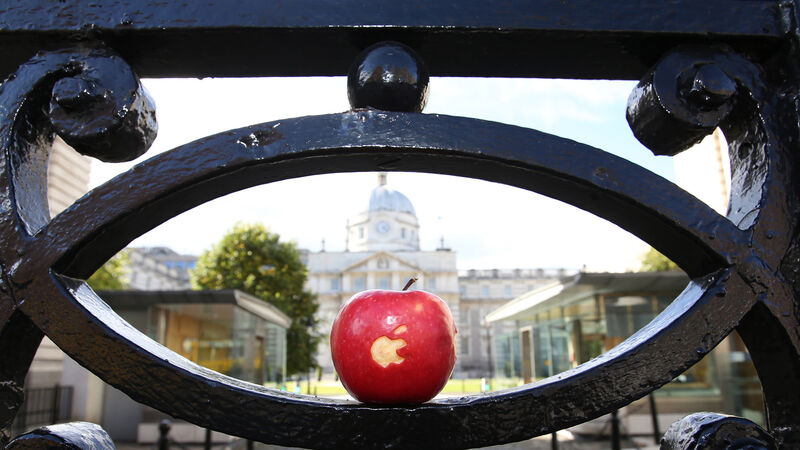EU's top court to begin hearing Apple tax appeal case

If the ruling is overturned, the US tech giant would be forced to pay the multi-billion euro tax bill, along with €1 billion in interest. Picture: Sam Boal/Rollingnews.ie
The controversial case of Apple's tax affairs in Ireland is going back before the courts today.
The Government is accused of letting the US tech giant underpay tax to the tune of €13.1 billion to make Ireland a more favourable place to do business.











